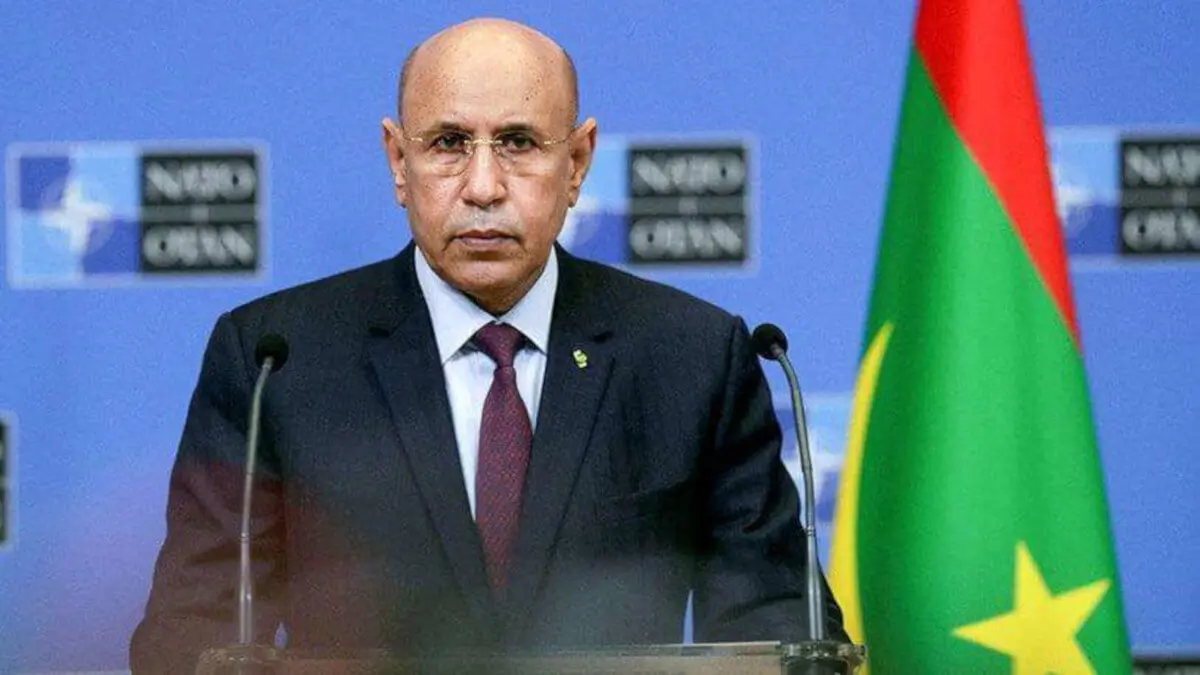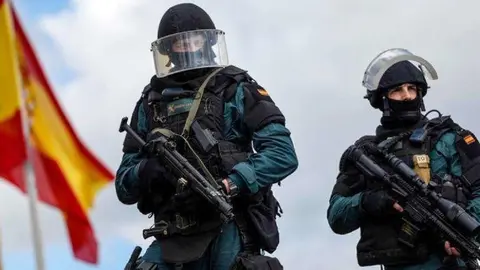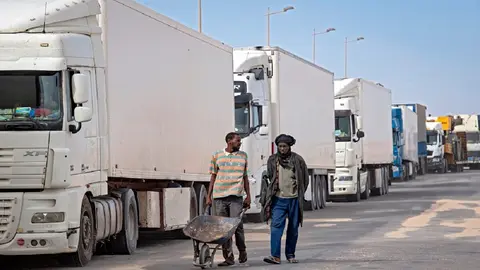The EU upgrades its relations with Mauritania

The visit of Pedro Sánchez, President of the Spanish Government, and Ursula von der Leyen, President of the European Commission, to Nouakchott will open a new stage in the European Union's (EU) relations with Mauritania.
The head of the Spanish government, Pedro Sánchez, will travel to Mauritania together with the President of the European Commission, Ursula Von Der Leyen. The direct aim of the visit is to strengthen cooperation between Spain and the European Union, on the one hand, and Mauritania, on the other, in order to curb the arrival of cayuco boats on the Canary Islands' coasts, but it does not take an expert to realise that the visit will include on its agenda security and stability issues that will be widely discussed and addressed with Mauritania, which has proven to be a reliable partner, committed to the agreements signed, and above all stable given the aggravated crises that have hit the fragile states of the region as never before.
This time, Europeans will have to listen to the Mauritanian approach to security, economy and migration, and understand the concerns and nature of the needs of Mauritania, which is surrounded by wars, coups d'état and insecurity that have caused waves of displacement and mass migration from Sudan to neighbouring and unstable Mali.
Mauritania's challenges
The phone call between Mauritanian President Mohammed Ould Cheikh El Ghazouani and Spanish President of the Government Pedro Sánchez in early January helped lay the groundwork and forge a joint vision between the two sides on shared challenges and how to work together to address them. Spain, which understands the problems and the state of emergency in which Mauritania finds itself due to the arrival of thousands of refugees fleeing wars and coups d'état, is playing a very important role in Europe to make the demands and concerns of Mauritanians visible and thus get the necessary support from European institutions, in the same way as it has already done with countries such as Libya and Tunisia.
The Spanish understand that Mauritania's security is part of their own security, and this is something they have repeatedly conveyed to their European partners. The departure of numerous dinghies from the Mauritanian coast to the Canary Islands in recent months has generated many concerns in the Spanish government and the Canary Islands authorities as well, leading Moncloa to make a move in Brussels and intensify pressure to urge the EU to provide more funds to Mauritania, which is facing an unprecedented refugee crisis due to the situation in its neighbours in Mali and most of the Sahel countries, plagued by instability and internal clashes. Experts have already warned of this, and humanitarian organisations have already sounded the alarm about the massive movements of thousands of refugees arriving in Mauritania, many of whom do so with the intention not to remain in Mauritanian territory but to wait for the first opportunity to move on to Europe.
The Spanish authorities have endorsed Mauritania's efforts and work in its fight to curb irregular immigration, and this has resulted in a joint effort by the Guardia Civil and the Spanish police with the Coast Guard, the Gendarmerie and various Mauritanian security units on the ground in Mauritanian territory where Spanish units are deployed.
The positive results of this cooperation helped prevent mass arrivals on the Canary Islands' coasts and encouraged both countries to continue working together. Spain has provided aid and support to the Mauritanian Coast Guard, with financial assistance last year amounting to 10 million euros, representing a third of Morocco's total. For its part, the European Union has earmarked 12.5 million euros to help Nouakchott fight illegal immigration. But these figures and this aid, important though it is, still fall far short of meeting the challenges facing Mauritania.
The aid that Mauritania receives must take into account the current context and the challenges it faces due to the conflicts in the Sahel. These conflicts have triggered the displacement of thousands of people in need of resources to subsist, which are already scarce, from drinking water, electricity, housing, food, etc. The arrival of hundreds of tens of thousands of refugees with the clear intention of not staying is a challenge for Mauritania as organised crime networks and terrorist organisations will exploit this situation for their own benefit and organised crime and human trafficking networks will increase their presence and activity, if no action is taken.
The Mauritanian authorities will give a warm welcome to the Spanish President of the Government, Pedro Sánchez, and the President of the European Commission, Ursula Von Der Leyen, without, according to knowledgeable sources in Nouakchott, expressing clearly and frankly the seriousness and importance of adopting urgent measures to strengthen cooperation between Mauritania and the EU and to support Mauritania's security and development efforts to combat irregular and disorderly immigration and eradicate human trafficking, something that Spaniards and Europeans seem to have taken into account before this visit. Proof of this is that several Spanish media are talking about a significant increase in the funds that the European Union will provide to Mauritania. Mauritania's geopolitical importance has made it an essential partner for NATO's southern flank strategy, a strategy adopted at the last meeting of North Atlantic Treaty Organisation members in Madrid, where they made clear their vision for the next ten years.
Mauritania is now a key player in the world and events in the conflict-ridden and unstable Sahel region have only confirmed the importance of having a strong and prosperous partner in the region.



